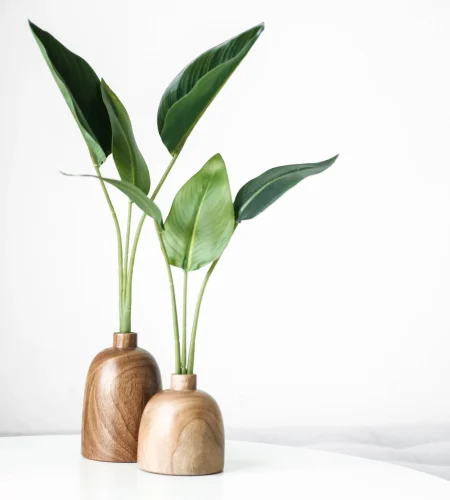The use of new technologies can help gardeners and plant lovers improve the quality of their plants and reduce the cost of growing them. In this article, we will look at the way AI can help you improve the efficiency of your gardening.
How AI applications help to grow plants easily and plant care app
With the development of technology and of artificial intelligence, our life has become much more comfortable. Artificial intelligence is used in many spheres, including the care of domestic plants. Caring for plants requires certain knowledge and time, so the use of artificial intelligence in this area can greatly facilitate the life of plant lovers, help them identify plant diseases, identify plants, and a lot more.
The use of new technologies can help gardeners improve the quality of their plants and reduce the cost of growing them. In this article, we will look at how artificial intelligence helps to take care of domestic plants and detect their diseases, as well as what advantages and limitations this approach might have. If you’re looking for an efficient plant care app, we recommend PLNT. More information can be found on the following website whatplantisthis.io. This AI-powered application can identify plants with 99% accuracy and has a disease database with treatment solutions and personalized watering calculations.
Caring for home plants is a responsible and time-consuming activity. Plants require certain conditions for normal growth and development, such as suitable temperature, humidity, lighting, and watering. Mistakes in care can lead to diseases of plants and even their death. However, the plant keeper does not always have enough time and experience to ensure optimal conditions for each plant.
In this case, AI can be incredibly useful. Let’s take a closer look at the way plant care apps and services can help you improve the efficiency of your gardening. Innovations in gardening are not only about new technologies but also new opportunities for gardeners and gardeners. Many of these innovations can bring substantial income, improve the quality of plant products, and reduce the cost of cultivation. Depending on your needs and resources, you can use both classical cultivation methods and new technologies to create the home garden of your dreams.
Plant Identification
You might have been in a situation where you see a plant that looks familiar, but you can’t remember its name exactly. Or when you’ve bought a plant and have accidentally forgotten its name and care recommendations in a shop. In this case, a plant identifier is actually irreplaceable. Plant care apps have ingrained databases that are based on AI technology. You should just take a couple of photos of any plant and the system will identify it with 99% accuracy.
Identification is extremely important when it comes to providing the right care. Each plant requires different conditions. What is more, a lot of databases have information not only about home plants but also about some wild and jungle plants, flowers, and trees. This is a good chance to improve your knowledge of the environment.
Controlling and managing the process
Applications help to assess weather conditions, calculate the necessary amounts of irrigation and fertilizers, as well as monitor the condition of plantings. Automatic irrigation and fertilizer systems also help save time and energy, and, thanks to the Internet connection, you can manage them from anywhere in the world. The system can monitor the soil moisture level and automatically water the plants when needed. This avoids drying out or waterlogging of the soil, which can negatively affect the health of plants.
With the help of special sensors and cameras installed next to plants, the artificial intelligence system can monitor and analyze various environmental parameters, such as temperature, humidity, and lighting. Based on this data, the system can automatically adjust the conditions in the room or issue all the necessary recommendations.
Disease Identification
In addition, artificial intelligence can help identify plant diseases at an early stage. The system can analyze photos of plants and compare them with a database of images of healthy and diseased plants. Based on this analysis, the system can determine whether there are signs of disease in a particular plant and suggest appropriate measures to combat the disease. This approach allows you to identify problems at an early stage and prevent their spread to other plants.
Each plant requires a different treatment. In addition, in some regions, pathogens may develop resistance to certain types of treatment; this information should be taken into account when looking for the right treatment.
However, it should be noted that the use of artificial intelligence in the care of domestic plants has its limitations. For example, the system may not always accurately determine the cause of a problem or a plant disease. In some cases, professional advice from a specialist is required in order to identify the right diagnosis and treatment of plants. In addition, the system may be limited in its capabilities, especially if not all environmental parameters are measured or controlled.
Plant Modifications
Scientists have developed new ways to implement so-called genomic selection. The genomic selection algorithm based on machine learning methods has been called Explicable AI. This is a field that studies the results of artificial intelligence decisions.
The algorithm helps determine which genome variations need to be combined to produce plants that can adapt to the environment well. Scientists receive information about possible breeding achievements, gene modification, and the necessary combinations of genes. The choice of bioengineering strategy depends on the data obtained.
Artificial intelligence currently has an increasingly important role in our lives, including the care of home plants. Artificial intelligence systems can help improve the process of caring for plants, providing optimal conditions for their growth and development. In addition, artificial intelligence apps can help identify plant diseases at an early stage, which allows you to take measures to treat them. However, it must be remembered that artificial intelligence systems have their limitations and cannot completely replace the experience and knowledge of a plant expert. The interaction between humans and artificial intelligence can lead to the best results in caring for domestic plants and preserving their health.
Subscribe to our email newsletter to get the latest posts delivered right to your email.



Comments